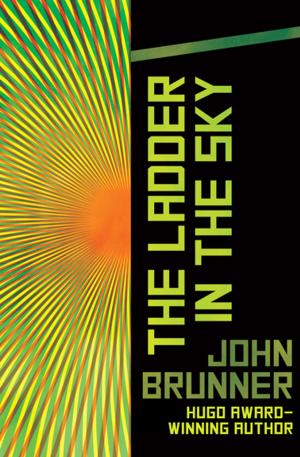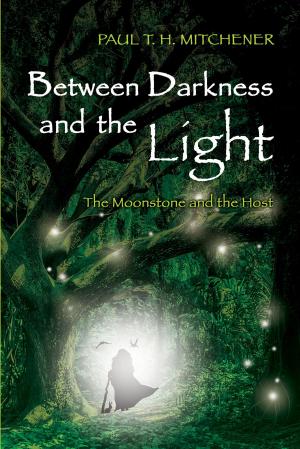| Author: | John Dalessio | ISBN: | 9781370898916 |
| Publisher: | John Dalessio | Publication: | November 24, 2016 |
| Imprint: | Smashwords Edition | Language: | English |
| Author: | John Dalessio |
| ISBN: | 9781370898916 |
| Publisher: | John Dalessio |
| Publication: | November 24, 2016 |
| Imprint: | Smashwords Edition |
| Language: | English |
The Universe is all of matter, time, space and energy including galaxies, stars and planets. The actual size of the universe is not known. It is constantly expanding and may well be infinite. Over the centuries astronomical observations have led to many discoveries including Worm Holes and distant galaxies composed of billions of stars. Some 13 billion years ago, theory had it that all of the matter and energy of space was at a single point. The Big Bang was an explosion of space within itself with all the particles of matter traveling away from each other expanding endlessly in every direction, thus creating what we now know as the Universe.
Ever since childhood, John had a fascination with the Universe, often staring in wonder at the vast bright star studded sky. He often imagined piloting a space ship through the dark reaches of space, exploring the planets in our solar system and beyond. John Alessi was a child of the 1950’s when space travel was relegated to science fiction comic books.
John was an avid reader and remembered reading about the first liquid fueled rocket launched by Robert H. Goddard from his Aunt Effie’s farm in Massachusetts 1926. It was 4-feet high and reached an altitude of 41 feet. A rebuilt German V-2 rocket was launched from White Sands Proving Ground in New Mexico May of 1946. This rocket was the progenitor of all modern rockets as it reached the edge of space at an altitude of 50 miles.
Fast forward to April of 1961 when Russian cosmonaut Yuri Gagarin became the first human in space. In May of 1961 President Kennedy challenged the country to put a man on the moon by the end of the decade. From that date forward the space race was on between Russia and the United States. Astronauts from the U.S. and Russia walked in space. Unmanned space craft explored Mars and Venus. In July 1969, Neil Armstrong and “Buzz” Aldrin became the first men on the moon. The Soviet space station Salyut 1 was launched in 1971 followed by the U.S. space station Skylab in 1972. From the early 1970’s through 1997 space probes flew to Mars, Jupiter, Saturn, Uranus, Neptune, and Venus photographing and mapping.
From the year 2000 events in space continued. The space craft NEAR in 2000 transmitted images of the asteroid Eros, then landed on the surface of Eros in 2001. In 2003 the space shuttle Columbia broke up on re-entry into the Earth’s atmosphere resulting in the deaths of seven astronauts. Space shuttle Discovery was launched with seven astronauts aboard in 2005, America’s first manned space shot since the 2003 Columbia disaster.
All of these continuing events occurring in space from the earliest days had a dramatic and lasting effect on John as he grew to adulthood. His interest in the Universe and space travel would re-shape his future.
From the very beginning of recorded history to modern day, people on planet Earth worshipped a god-like entity. Religions were created by man to worship a single God-like or many Gods. Many of these religions believed that an omnipotent being, or a God created the Earth, the Universe, and mankind.
John was never very religious. He grew up questioning the origin of creation and the existence of God as written in scriptures by man. He came to think the existence of God could be confirmed or invalidated by seeking out life on other planets in the far reaches of outer space. A major breakthrough in space ship propulsion technology would permit John’s ship, the Seeker, to travel at nearly the speed of light. Travel to other galaxies would take mere hours instead of years or lifetimes. John hoped he would seek out the truths of creation, man and religion that haunted him since childhood.
When compared to the existence of the vast endless Universe of continuing creation, John thought there was something more . . . . . .
The Universe is all of matter, time, space and energy including galaxies, stars and planets. The actual size of the universe is not known. It is constantly expanding and may well be infinite. Over the centuries astronomical observations have led to many discoveries including Worm Holes and distant galaxies composed of billions of stars. Some 13 billion years ago, theory had it that all of the matter and energy of space was at a single point. The Big Bang was an explosion of space within itself with all the particles of matter traveling away from each other expanding endlessly in every direction, thus creating what we now know as the Universe.
Ever since childhood, John had a fascination with the Universe, often staring in wonder at the vast bright star studded sky. He often imagined piloting a space ship through the dark reaches of space, exploring the planets in our solar system and beyond. John Alessi was a child of the 1950’s when space travel was relegated to science fiction comic books.
John was an avid reader and remembered reading about the first liquid fueled rocket launched by Robert H. Goddard from his Aunt Effie’s farm in Massachusetts 1926. It was 4-feet high and reached an altitude of 41 feet. A rebuilt German V-2 rocket was launched from White Sands Proving Ground in New Mexico May of 1946. This rocket was the progenitor of all modern rockets as it reached the edge of space at an altitude of 50 miles.
Fast forward to April of 1961 when Russian cosmonaut Yuri Gagarin became the first human in space. In May of 1961 President Kennedy challenged the country to put a man on the moon by the end of the decade. From that date forward the space race was on between Russia and the United States. Astronauts from the U.S. and Russia walked in space. Unmanned space craft explored Mars and Venus. In July 1969, Neil Armstrong and “Buzz” Aldrin became the first men on the moon. The Soviet space station Salyut 1 was launched in 1971 followed by the U.S. space station Skylab in 1972. From the early 1970’s through 1997 space probes flew to Mars, Jupiter, Saturn, Uranus, Neptune, and Venus photographing and mapping.
From the year 2000 events in space continued. The space craft NEAR in 2000 transmitted images of the asteroid Eros, then landed on the surface of Eros in 2001. In 2003 the space shuttle Columbia broke up on re-entry into the Earth’s atmosphere resulting in the deaths of seven astronauts. Space shuttle Discovery was launched with seven astronauts aboard in 2005, America’s first manned space shot since the 2003 Columbia disaster.
All of these continuing events occurring in space from the earliest days had a dramatic and lasting effect on John as he grew to adulthood. His interest in the Universe and space travel would re-shape his future.
From the very beginning of recorded history to modern day, people on planet Earth worshipped a god-like entity. Religions were created by man to worship a single God-like or many Gods. Many of these religions believed that an omnipotent being, or a God created the Earth, the Universe, and mankind.
John was never very religious. He grew up questioning the origin of creation and the existence of God as written in scriptures by man. He came to think the existence of God could be confirmed or invalidated by seeking out life on other planets in the far reaches of outer space. A major breakthrough in space ship propulsion technology would permit John’s ship, the Seeker, to travel at nearly the speed of light. Travel to other galaxies would take mere hours instead of years or lifetimes. John hoped he would seek out the truths of creation, man and religion that haunted him since childhood.
When compared to the existence of the vast endless Universe of continuing creation, John thought there was something more . . . . . .















